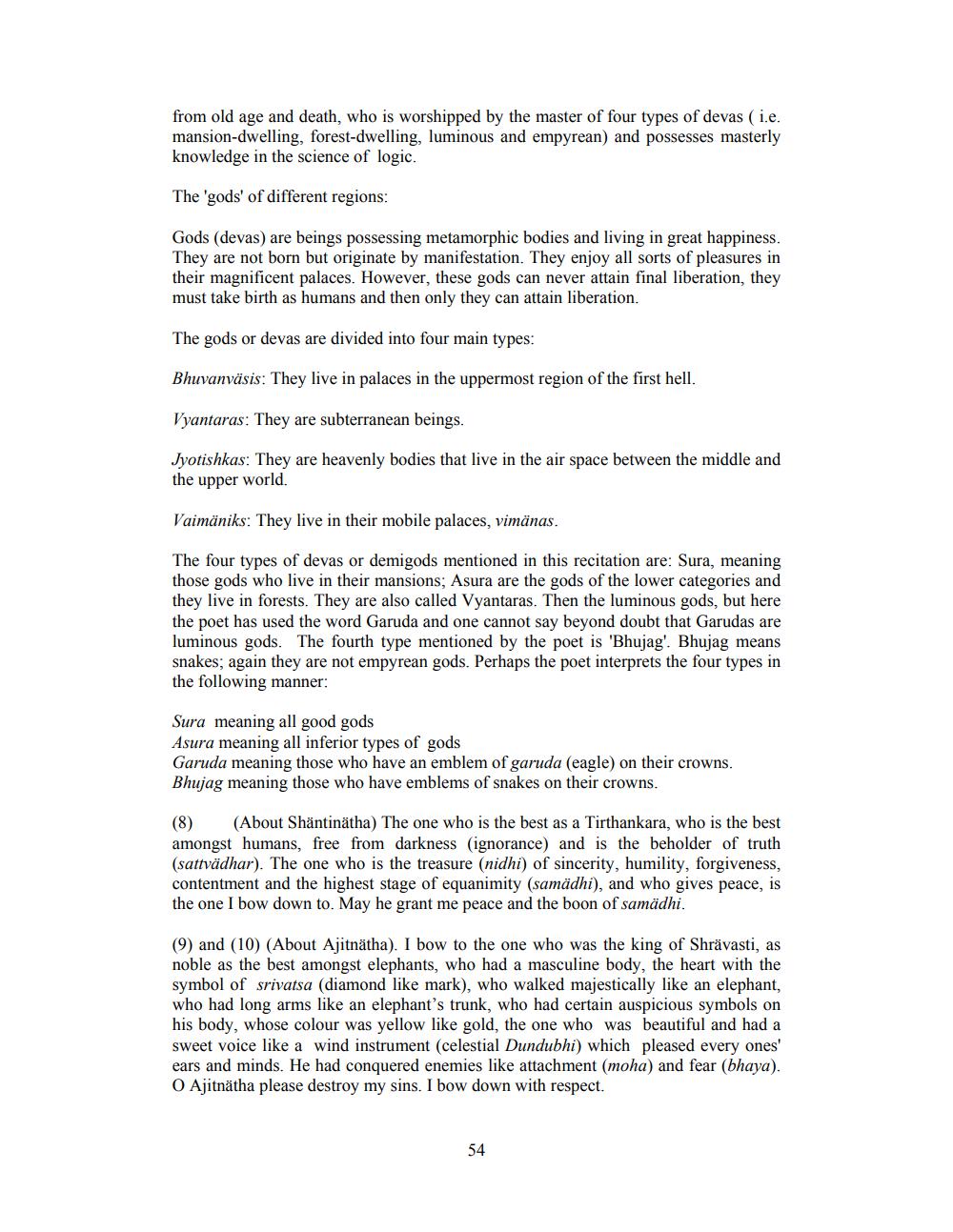________________
from old age and death, who is worshipped by the master of four types of devas (i.e. mansion-dwelling, forest-dwelling, luminous and empyrean) and possesses masterly knowledge in the science of logic.
The 'gods' of different regions:
Gods (devas) are beings possessing metamorphic bodies and living in great happiness. They are not born but originate by manifestation. They enjoy all sorts of pleasures in their magnificent palaces. However, these gods can never attain final liberation, they must take birth as humans and then only they can attain liberation.
The gods or devas are divided into four main types:
Bhuvanväsis: They live in palaces in the uppermost region of the first hell.
Vyantaras: They are subterranean beings.
Jyotishkas: They are heavenly bodies that live in the air space between the middle and the upper world.
Vaimäniks: They live in their mobile palaces, vimänas.
The four types of devas or demigods mentioned in this recitation are: Sura, meaning those gods who live in their mansions; Asura are the gods of the lower categories and they live in forests. They are also called Vyantaras. Then the luminous gods, but here the poet has used the word Garuda and one cannot say beyond doubt that Garudas are luminous gods. The fourth type mentioned by the poet is 'Bhujag'. Bhujag means snakes, again they are not empyrean gods. Perhaps the poet interprets the four types in the following manner:
Sura meaning all good gods Asura meaning all inferior types of gods Garuda meaning those who have an emblem of garuda (eagle) on their crowns. Bhujag meaning those who have emblems of snakes on their crowns.
(8) (About Shäntinätha) The one who is the best as a Tirthankara, who is the best amongst humans, free from darkness (ignorance) and is the beholder of truth (sattvädhar). The one who is the treasure (nidhi) of sincerity, humility, forgiveness, contentment and the highest stage of equanimity (samädhi), and who gives peace, is the one I bow down to. May he grant me peace and the boon of samädhi.
(9) and (10) (About Ajitnätha). I bow to the one who was the king of Shrävasti, as noble as the best amongst elephants, who had a masculine body, the heart with the symbol of srivatsa (diamond like mark), who walked majestically like an elephant. who had long arms like an elephant's trunk, who had certain auspicious symbols on his body, whose colour was yellow like gold, the one who was beautiful and had a sweet voice like a wind instrument (celestial Dundubhi) which pleased every ones' ears and minds. He had conquered enemies like attachment (moha) and fear (bhaya). O Ajitnätha please destroy my sins. I bow down with respect.




